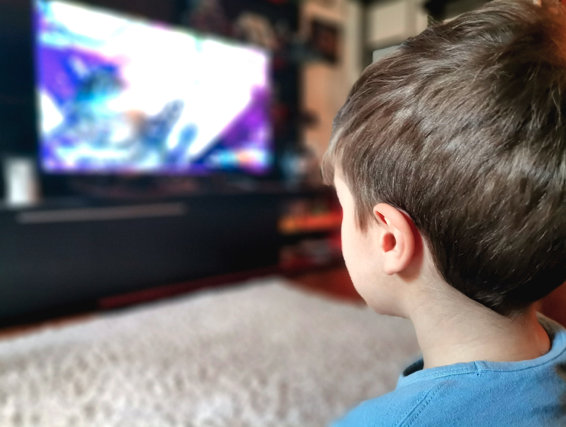Many parents in Flanders didn't shy away from thrusting a smartphone in their children's hands in the past, but now, they are increasingly shielding their offspring from these devices.
Every two years, the Flemish centre for digital and media literacy Mediawise surveys parents in the region on their children’s media use. Whereas in 2021's study parents showed little regard about handing smartphones to young children, parents are now thinking twice about putting devices in the hands of little ones.
For children under eight, smartphone use fell from 50% two years ago to 30% for 2023. Five to eight -year-olds in particular are less likely to be given a smartphone; in 2021 there were still more five to eight-year-olds using a smartphone than 0 to 4-year-olds, researchers now see the reverse.
Among 9 to 12-year-olds, a slight decline in smartphone use was also noticed, but this trend ends at the age of 13: almost all teenagers use smartphones.
The lesser of two evils?
With more parents themselves increasing their use of smartphones, many are giving more thought to what is appropriate for a child.
“Overall, we clearly see a change in awareness among parents, which is not to say that they are all suddenly very media savvy. But the intention to ‘get on board’ and consciously engage in media education is there,” said Karen Linten, media education expert.
When looking to occupy children with a screen, parents now prefer putting their offspring in front of the television. Researchers explain that this has everything to do with this being an "old familiar screen device" over which parents feel they have more control, especially since they can follow what is being shown on screen.
Hands-on approach
Parents may be more aware of their child’s media use, but this does not mean that it worries them any less. In fact, parents have become more concerned about their children's screen time, as well as their privacy and the content the child is viewing.
Parents of children nearing an age where smartphones become more common-use (between 9 and 12) are especially interested about nurturing healthy habits – especially with regard to social media use.
Related News
- Driving distracted: Those caught using a phone now face 15-day ban
- 'Glass Generation' struggling with information overload, psychologists warn
"Parents see this happening at a rapid pace and cannot always follow,” the researchers said. They point out that this anxiety need not be negative: "It is possible that parents are simply more concerned because they know more about media and are more engaged with it."
But in some cases, the anxiety is partly justified, as they are not always informed about which social media and apps their children are using, or whether they are encountering cyberbullying or have experienced sexting. Researchers did find that parents overestimate the amount of "scary images" and images of drugs or sex that their child sees.

